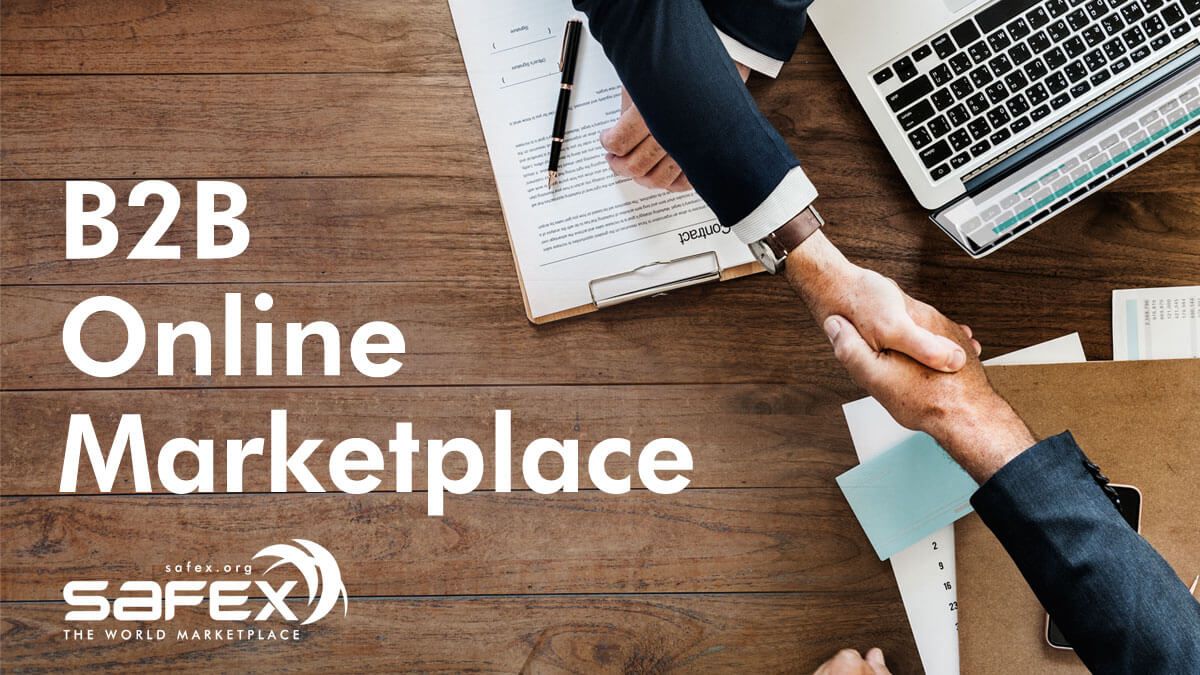B2B Online Marketplace - All you Need to Know
If you own a business and are looking to go online with it, you may be thinking about selling through a B2B online marketplace. Here’s all you need to know about it.

Business owners typically look for different ways to expand and grow their companies. One of those ways is joining the eCommerce world and start selling their goods and services online. However, eCommerce is a term that covers many topics, and merchants often find themselves choosing between e-commerce vs. online marketplace. Although building your own website and setting up your online store has its benefits (mainly in terms of having more control over design, looks, content, marketing strategies, etc.), it also has its downfalls; it’s a pricey option and may not be that beneficial for small or uprising businesses. On the other hand, a B2B online marketplace takes some of the control from your hands, but it also provides many benefits, including a broader audience, low start-up and maintenance costs, little to no marketing costs, etc. Therefore, a B2B online marketplace can be an excellent choice for small businesses and any other company looking to expand their market. In case you are thinking about entering one of these marketplaces, it’s essential to know how they work and how you should utilize them to increase your revenue.
What are B2B online marketplaces?
Business to Business online marketplaces are essentially online platforms where B2B buyers and sellers get together to do business. Although most people are more familiar with the B2C (Business to Consumer) marketplaces, where businesses sell their goods and services to individual customers, B2B online marketplaces increase in popularity year after year. Whether the increment is due to the global restrictions, or the fact that selling and buying this way simplifies many things for business owners, these marketplaces can definitely benefit businesses worldwide in the long run.
Generally speaking, B2C online marketplaces aren’t that much different from B2B ones. Nevertheless, there are some critical differences between these two:
- The volume of orders. This one is pretty obvious since B2B involves businesses supplying other businesses, so a typical order is quite large in volume. On the other hand, a customer will place an order on a B2C platform and purchase several items that fulfill his needs.
- Pricing terms. While sellers on B2C marketplaces set up a specific price relevant to every buyer on the platform, a seller on a B2B online marketplace will typically form separate agreements with all of his customers. Those agreements can include special prices and offers if the two businesses are looking to build a long-term collaboration.
- Payment options. We’re used to having several different payment options when we order from a B2C online marketplace. Those options include debit and credit cards, PayPal, cryptocurrency, etc. On the other hand, businesses who place their orders on a B2B online marketplace will get an invoice.
- The checkout process. The checkout process in a B2B transaction is often complicated because of the particular payment methods, multiple orders, and delivery methods. That’s why businesses typically have their accounts with saved details so that they can repeat their orders quickly.
Pros and Cons of selling on a B2B online marketplace
B2B eCommerce has a lot of benefits, joining a B2B online marketplace can bring the massive potential for businesses worldwide. The main benefits of joining one of those marketplaces include:
- Building your company’s online presence. Once you digitize your product catalog, you’ll already be ahead of some of your competitors out there. You’ll also be approachable to a whole new and broader audience.
- Low initial costs. Instead of spending a lot of money on setting up your own platform, building your website, paying for PPC ads and other forms of marketing, you can simply join a B2B marketplace and save a lot of money. Although online marketplaces charge their merchants differently, initial costs are typically low.
- An easy set-up. Once again, you won’t need weeks or even months preparing your online storefront if you choose to join a B2B online marketplace. Instead, you’ll need to upload your products, enter product descriptions, and you’ll be up and running.
- Increased revenue. As we mentioned earlier, B2B online marketplaces typically take care of most of the work, including marketing. Once you start saving on ads, you’ll be able to redirect your revenue to other, more important things.
How to choose a B2B online marketplace?
Once you’ve decided to join a B2B marketplace, you’ll need to select the right one. It’s helpful to know that there are so many B2B online marketplaces out there, and they can all be somewhat different in terms of their policies, pricing structures, geographical positioning, etc. The following B2B marketplaces models can help you determine the most suitable platform for your company’s needs:
- Vertical vs. Horizontal: Vertical B2B marketplaces specialize in a particular industry or a single product category. On the other hand, horizontal B2B marketplaces have a broad spectrum of products and services they sell and are appealing to buyers across several different sectors and segments.
- One-to-Many vs. Many-to-Many: A one-to-many marketplace is hosted and managed by a single business. In contrast, a third party typically operates many-to-many marketplaces, and they allow multiple buyers and sellers to interact on the platform.
- Local vs. Global: In terms of geography, B2B online marketplaces can either be accessible to their local community or people worldwide.
How B2B online marketplaces charge their merchants can also vary. If you’ve ever wondered how do online marketplaces make money, here are the three most common types of B2B marketplaces business models:
- The commission-based business model includes sellers paying a percentage of each sale they make to a B2B marketplace,
- Subscription-based business model refers to marketplaces that charge a subscription fee to merchants who want access to the platform, and
- The listing fee business model is used by marketplaces that charge their sellers a certain fee for every product they list on their platform.
Final thoughts
Joining a B2B online marketplace to sell goods and services can be a fantastic way to raise brand awareness, grow your business and increase eCommerce revenue. Still, opting for the right one can significantly impact how these goals turn out for you. As we mentioned earlier, each B2B marketplace is different, and there are several essential things to consider before making the final choice. It’s important to notice that there are also blockchain-based eCommerce platforms besides the centralized, 3rd party platforms. One of those platforms is Safex Market powered by Safex Blockchain, a decentralized platform suitable for companies looking to supply other businesses with their goods while having safe transactions, low commission fees, a worldwide audience, and data security.
Read more eCommerce articles.
